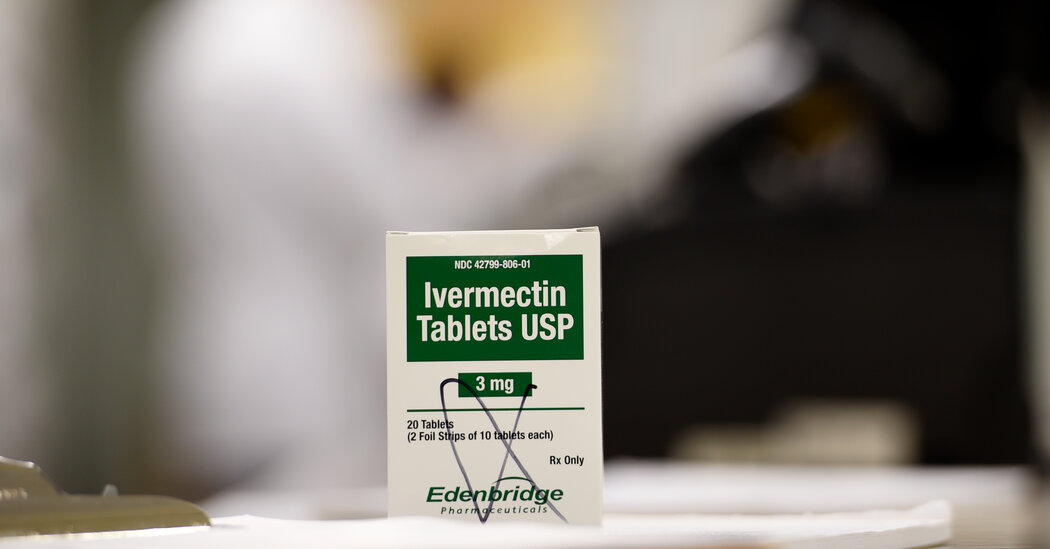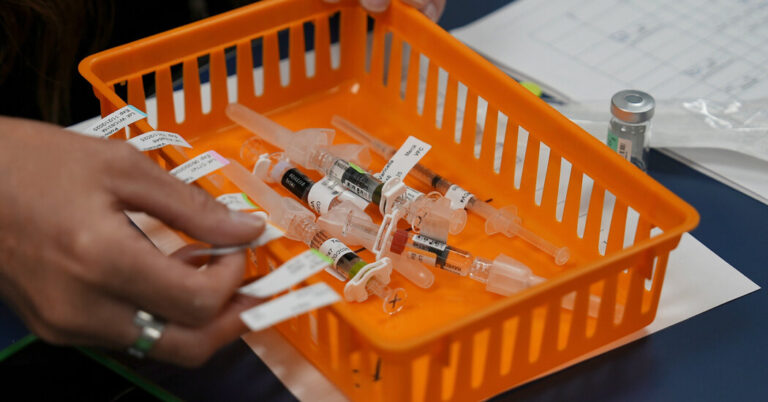Here is the result from the feed in plain text:
Joe Grinsteiner is a gregarious online personality who touts the anti-parasitic drug ivermectin.
In a recent Facebook video, he produced a tube of veterinary-grade ivermectin paste — the kind made for deworming horses. He gave the tube a squeeze. Then he licked a slug of the stuff, and gulped. “Yum,” Mr. Grinsteiner said in the Feb. 25 video, one of a number of ivermectin-related posts he has made that have drawn millions of views on Facebook this year. “Actually, that tastes like dead cancer.”
Ivermectin, a drug proven to treat certain parasitic diseases, exploded in popularity during the pandemic amid false claims that it could treat or prevent Covid-19. Now — despite a persistent message from federal health officials that its medical benefits are limited — interest in ivermectin is rising again, particularly among American conservatives who are seeing it promoted by right-wing influencers.
Mr. Grinsteiner, 54, is a Trump supporter and country music performer who lives in rural Michigan. He has claimed in his videos that ivermectin cured his skin cancer, as well as his wife’s cervical cancer. In a video last month, he said a woman told him her nonverbal autistic child had become verbal after using ivermectin. In a recent phone interview, Mr. Grinsteiner said that he takes a daily dose of ivermectin to maintain his general well-being.
There is no evidence to support people taking ivermectin to treat cancer or autism. Yet Mr. Grinsteiner believes that the medical and political establishments just want to keep average people from discovering the healing powers of a relatively affordable drug.
“These guys are absolutely money driven,” he said in one video. “And when I say ‘these guys,’ I’m talking about all those politicians in Washington taking money from the big pharma.”
Ivermectin has become a sort of enduring pharmacological MAGA hat: a symbol of resistance to what some in the movement describe as an elitist and corrupt cabal of politicians, scientists and medical experts.
Last week, Gov. Sarah Huckabee Sanders of Arkansas signed a law allowing ivermectin to be sold over the counter. Other legislation is pending in at least six other states: Kentucky, West Virginia, Louisiana, Georgia, Alabama and Texas. In 2022, Tennessee passed a law making it easier to get ivermectin from a pharmacist.
There is an ongoing interest in ivermectin comes as little surprise to Lewis A. Grossman, a law professor and historian at American University who has written extensively about the concept of “therapeutic choice.” Mr. Grossman said that over the course of American history, a number of treatments have become popular despite having little or no buy-in from medical experts.
At the height of laetrile’s popularity, proponents praised its affordability and railed against a big medicine-government “conspiracy” against it, while many experts classified it as quackery.
The F.D.A. never approved it for treating cancer or any other therapeutic use, said Mr. Grossman, who is writing a book about laetrile called “Seeds of Rebellion.”
A number of the lawmakers pushing to make ivermectin easier to buy in their states say they want to help constituents who are already taking it, some of whom use veterinary-grade ivermectin because they cannot get it at a regular drugstore.
Mostly they’re going to the ag store” for ivermectin, Mr. Clark said. “And it would be much safer for them to use what is intended for human consumption.”
Many lawmakers seeking to ease access to ivermectin, like State Representative Wes Virdell of Texas, say they are promoting what Mr. Virdell, a Republican, calls “medical freedom.”
“I think people should be able to choose whatever route they want” to treat themselves, he said. “Even if they’re wrong, right?”
Dr. Califf, the former F.D.A. commissioner, sees it differently.
“All interventions have risks,” he said. “And if you have no benefit, and you have some risk, then why on earth — you know, there’s no rational reason why someone should take the intervention.”
Dani Blum contributed reporting.
Source link




